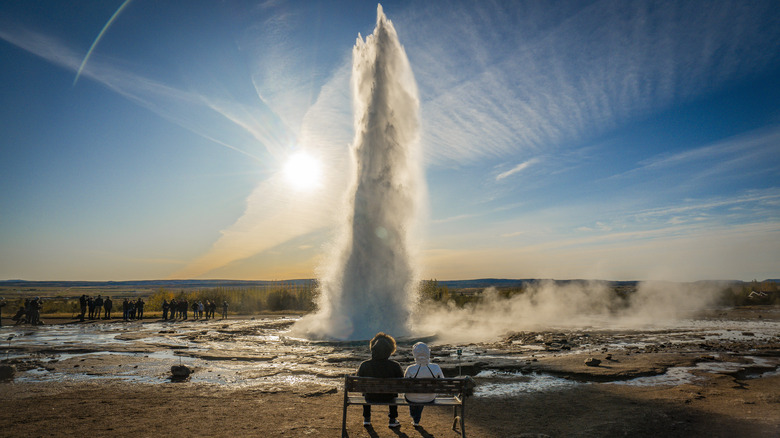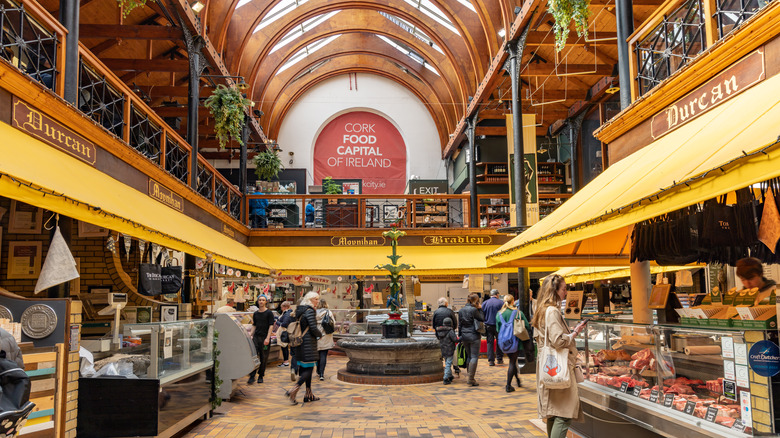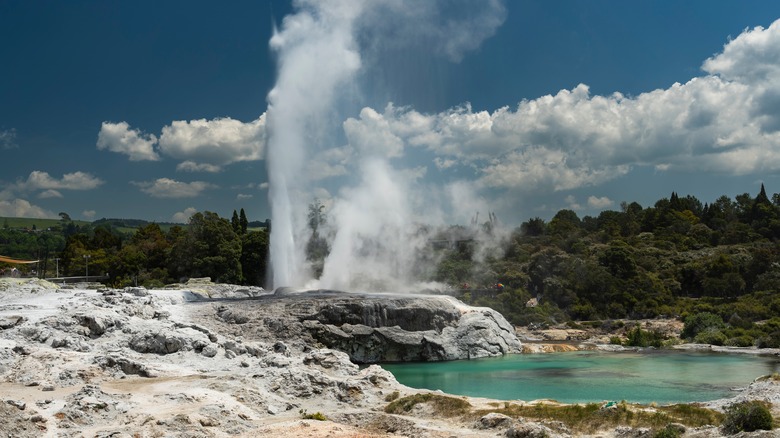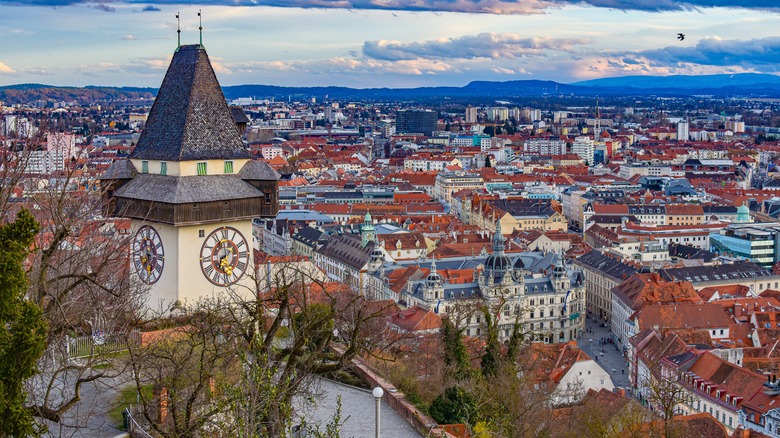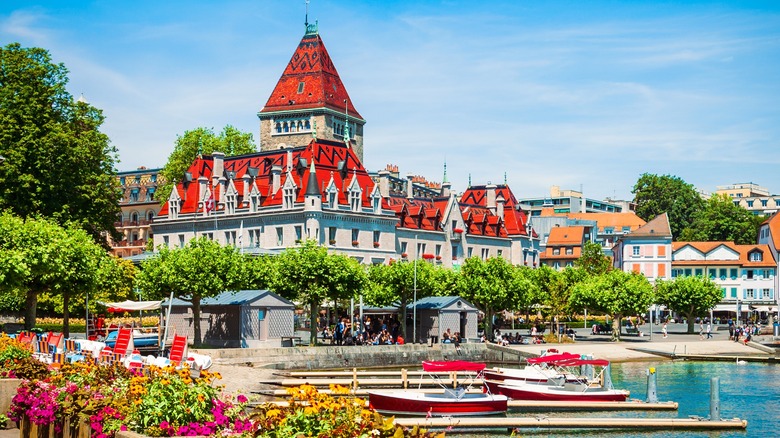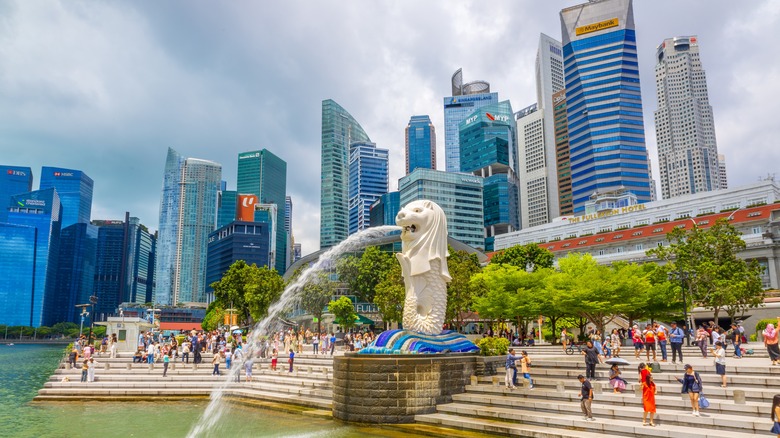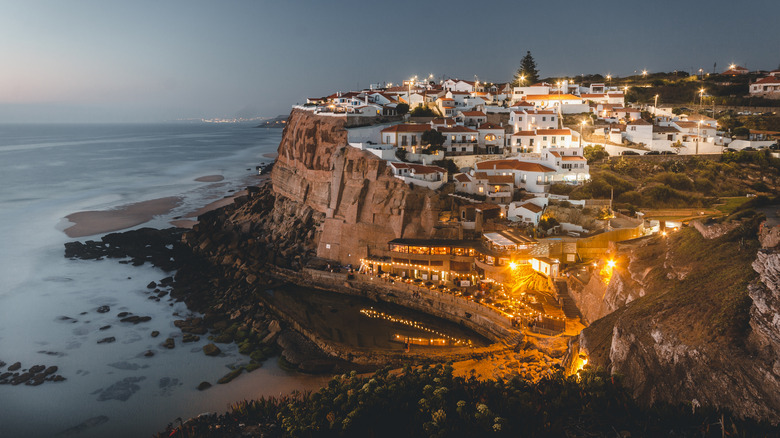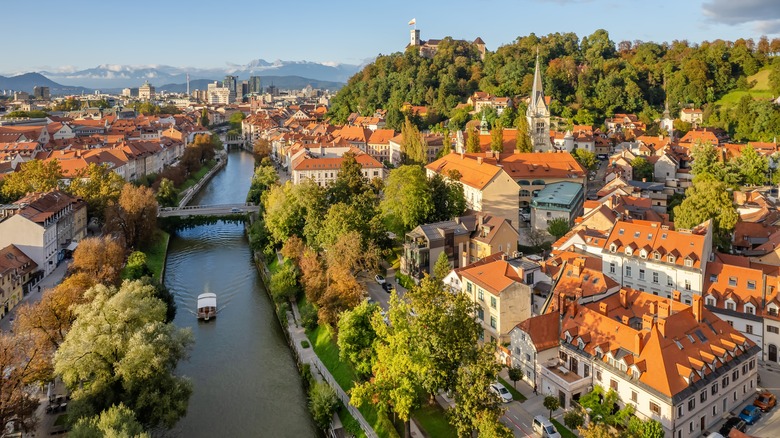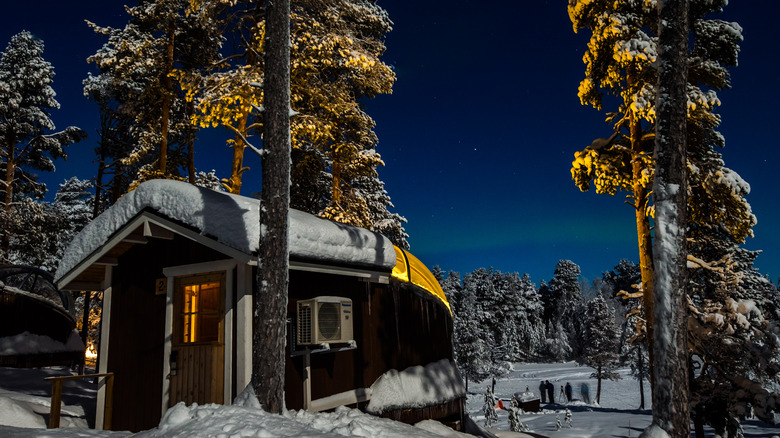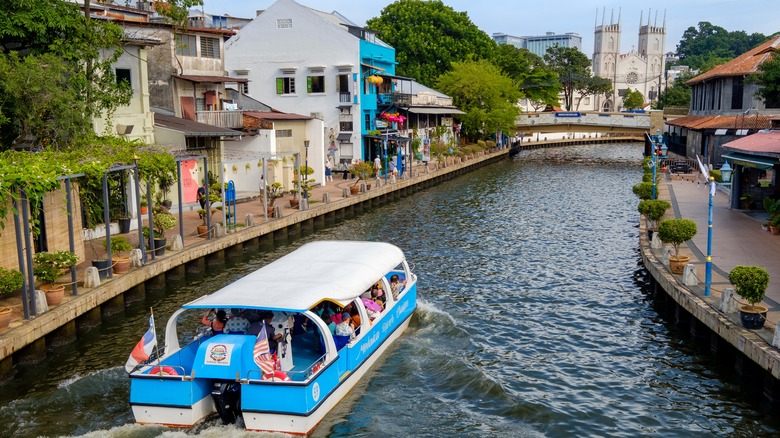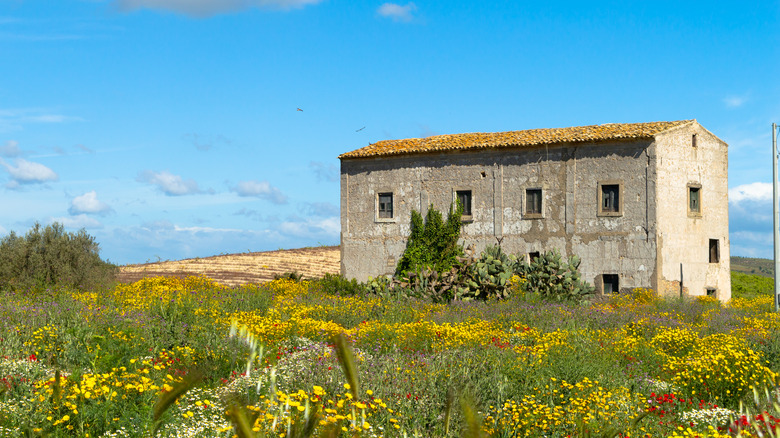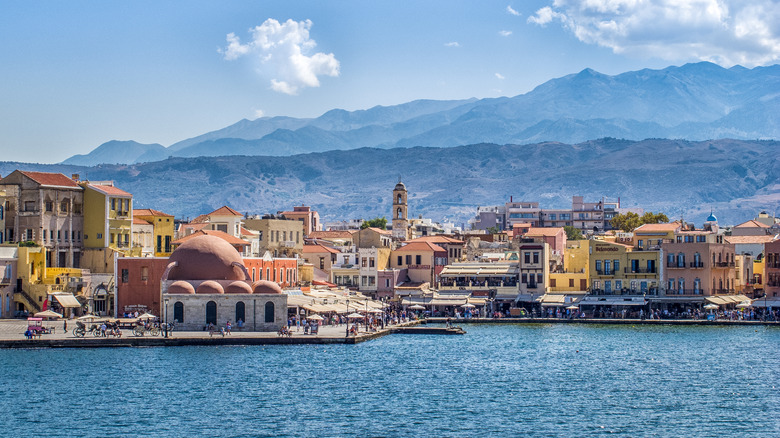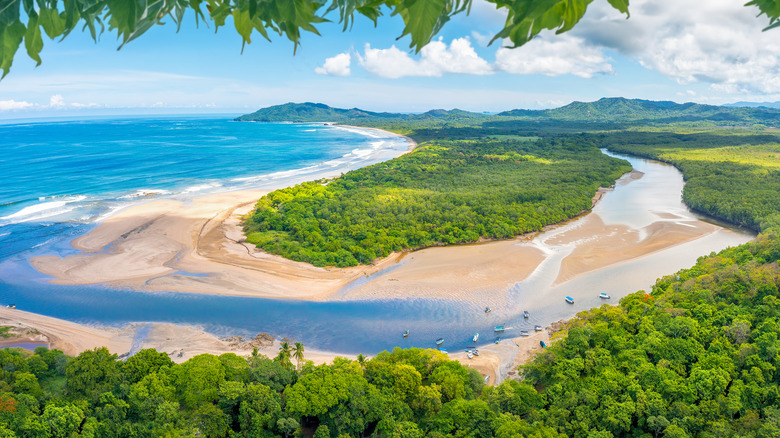These Are The Safest Destinations To Retire Abroad In 2025, According To Research
We've all traveled somewhere that has set fantasies of retiring there dancing in our heads. For me, it was Oaxaca, Mexico. With its low cost of living, community-centered lifestyle, and exceptional food, Mexico seemed like the place for me to live out my golden years.
But safety is always a concern, and many people tried to dissuade me from my quest. I decided to check out the Global Peace Index, released annually by the Institute for Economics and Peace, in an attempt to show them that I'd be okay. Instead, I found the popular retirement destination was ranked 135 out of 163 on the chart, damningly close to Russia and Ukraine, which round out the bottom of the list.
Maybe it was time to reconsider after all. So I decided to use the Global Peace Index as a loose guide to help me find some of the best places to potentially live for the rest of my life. These are the safest places to put on your list. My advice? Read this article, travel widely, and find the country that speaks to your soul.
Iceland is the most peaceful
The number one most peaceful country for 18 years and number three happiest, Iceland, sounds perfect, but it also has one of the highest costs of living. Still, its otherworldly landscape could be worth it if you can prove you have the cash to settle there, as well as a significant connection to the country. The easiest way to get residency is through family ties, but demonstrating you have a "secure means of support" is paramount. Translation: A couple must have around $3,232 at their disposal each month. Once you're there, Numbeo estimates that the cost of living in Iceland is 45.1 percent higher than in the United States.
But if you can make it to Iceland, you'll be greeted by spectacular sights that make your efforts worth it. Hot springs rightfully get a lot of attention from visitors to the country, so retirees can make it a point to hit as many as they can. One of the best ways to do this is to drive the 186-mile Golden Circle, where you can stop at Geysir Hot Spring Area, home to the 100-foot Strokkur geyser. It begins and ends near the capital of Reykjavik, home to the largest expat community in Iceland.
Ireland is for safe city life
Yes, you can retire to a charming, rural area in Ireland, and cities are safe there, too. It's number two on the Global Peace Index, meaning you'll find a relaxed way of life even in the capital of Dublin. It's also number 17 on the happiness scale. Why? Blame the soaring Cliffs of Moher, so lushly green they earn the country's reputation as the Emerald Isle.
For a combination of old-world appeal and modern city life, Galway features both cobblestone streets and a buzzing locavore restaurant scene. Cork is renowned for its many parks, but also its array of historical buildings. Food lovers will be delighted to get their groceries at the historic English Market, which Rick Stein calls the best of its kind in the U.K. and Ireland.
The only downside? The criteria for a retirement visa are strict. Retirees must prove that they have about $250,000 at their disposal on top of €50,000 per year for each person. Factor that in with the high cost of living for housing and food. Another consideration? The wet weather in both winter and fall isn't for everyone.
New Zealand is for natural beauty
Though it's more expensive to retire in New Zealand than in most of the other countries on this list (and the United States), if you can afford it, you'll be rewarded with seemingly endless outdoor exploration. The varied topography allows for everything from snowy mountains to steamy rainforests. Even better? New Zealand is number three on the Global Peace Index, up two places from last year, as well as number 11 among the happiest countries in the world.
You'll stay there on the Temporary Retirement Visa. To get the two-year, renewable visa, you'll need to prove that you have around $350,000 USD to support you and around half a million dollars to invest, as well as an annual income of at least $42,000. If that's you, prepare for a wealth of options for where to settle.
Tauranga has been historically popular among expats for its safe city life, in large part due to its location on the gorgeous Bay of Plenty. For those on a smaller budget and seeking beautiful weather, Whangārei, about two hours outside of Auckland, is gaining favor among retirees.
Austria is for the arts
The number four most peaceful destination and number 14 for happiness is a must for postcard-worthy views, but also art-and-cafe-filled cities. One potential issue: You will need to prove your mettle in German, so get that language-learning app ready!
There's no retirement visa, so plan on showing that you have access to enough money monthly for you to get by with a settlement permit. It's a longer process than in some countries and will likely necessitate a German-speaking lawyer. Once you're there, consider skipping overcrowded Vienna and Salzburg in favor of Graz, a UNESCO World Heritage site known for its affordability. Graz is also notable as the country's culinary capital, recognized for its futuristic art and fun food scene.
Switzerland is luxurious
Filled with awe-inspiring mountains and friendly people, most of us would love to retire to Switzerland, but few can afford it. That high-level health care, number five for peace and number nine for happiness, all add up to around $4,000 monthly in basic living expenses for the average retired couple. Those who have done exceptionally well in their working years should take full advantage of living the literal high life here.
One appealing element of modern Switzerland is that you won't have to learn Romansh. You won't even have to study up on German, French, or Italian, all spoken here. That's because in some cities, including Zürich, English is not only understood, but often primarily spoken. The type D visa requires you to present basic information such as health insurance and sufficient income, but also "a close connection to Switzerland." That might mean family or intimate friends, but could also translate to frequent visits before your time of application.
Where to settle? Might we recommend Lausanne? Known as the San Francisco of Switzerland, the 140,000-person city is not only near Lake Geneva, but has the Alps on the not-so-distant horizon. Medical care should be no worry with the many high-quality private clinics in town, located not far from Michelin-starred restaurants. If you don't have the big bucks, it's also worth considering the canton of Jura, which is close to the expensive cities, including Basel, but has a cost of living of about $2,600-a-month.
Singapore is for cultural exchange
There's no specific retirement visa in Singapore. However, the city-state, ranked number six for peace, is a standout for its mix of cultural influences and easy accessibility to the rest of Asia. So how do you make it your home? Unless you're married to a Singaporean or worked in Singapore before age 50, the only option is an EntreprePass, which allows you to achieve residency by starting a Singaporean business. After two renewals, you may be eligible for permanent residence. Two years into permanent residence, it's possible to apply for citizenship.
If you're willing to put off your full retirement and start a new adventure, Singapore could be just the place to do it. The main island, where the vast majority of people live, is a bustling melting pot. One of the busiest ports on the planet, you'll meet fellow expats from all over the world. In 2020, 1.64 of the roughly 6 million-person population were expats, attracted by booming business and year-round warm weather.
You'll find temples and hawker centers representing the best of Asia around the island for inexpensive thrills, but that's about all that's cheap. Be prepared to pay a premium for rent — around $3,926.19 for a one-bedroom apartment. However, Changi Airport is consistently named the best airport in the world. It makes Singapore the ideal hub from which to explore the rest of Asia and even Oceania.
Portugal is the gateway to Europe
Portugal's location, less than 7 hours' flight from New York, means it's close to the U.S., but also makes all of Europe easily accessible. At number seven on the Global Peace Index, it's also one of the safest places on the planet. But if that isn't reason enough to think about living in Portugal, what about the fact that the weather in the southern half of the country is comfortably warm year-round?
Portugal has a reputation as one of the most welcoming places in Europe to foreign retirees. Once you've lived legally in the country for five years, you can even apply for citizenship. Until then, it's not too difficult to obtain the D7 (Passive Income) Visa, for which you just have to prove that you'll be able to support yourself without taking jobs from locals once you're there. Another boon is that Portugal is very comfortable with English, but the country offers free Portuguese courses to newcomers, so communication is no problem.
Where to settle? While some retirees are looking for the low-cost, quiet way of life in one of the most charming cities in Portugal, Bragança, sunnier climes are most popular among expats. Porto is justifiably famous as a wine region, but Cascais is quickly rising as a favorite for its beach vibes in a city surrounding an impressive citadel. It's only 20 miles from the capital of Lisbon, which makes the area known as the "Portuguese Riviera" accessible via most mass transit options. Wherever you choose, get ready to start your days with warm, eggy pastéis de nata!
Slovenia is a hidden gem
Rick Steves often calls Slovenia relatively undiscovered, but it's number nine on the Global Peace Index and number 21 for happiness. In other words, it's more than just pretty castles and wine country that connects Italy, Austria, and Eastern Europe. It's a gustatory gem, known for its irresistible desserts and charming farm restaurants. Because it's not as well-known as many other countries on this list, the expat community isn't as robust, but if you're willing to go it alone, you'll be rewarded with a fairy tale existence.
Though there is no specific retirement visa for non-EU citizens, it does have a relatively easy path to permanent residency. You must apply for a renewable one-year temporary residence visa. Once you've been in Slovenia for five years, you can apply to make matters permanent. The only major hurdles are proving that you have a monthly income that will support you in Slovenia — about $1,000 a month, and having health insurance. Knowing some Slovenian will help enormously in small towns, but larger cities have about 74 percent of residents who understand English.
The capital of Ljubljana is an ideal home base for retirees on the move — it's the only city with a major airport from which to catch a flight. The pedestrian-friendly Old Town makes it a great place if you want to stroll past historic buildings, including Ljubljana Castle.
Finland is literally the happiest place on Earth
The #10 most peaceful country in the world is the happiest. The universal healthcare for official residents and widely available mass transit are just part of what makes it so. While it's more expensive than most of the places on this list, it's still much cheaper than much of the U.S. For example, in the capital of Helsinki, residents can expect to pay less than $2,000 monthly in rent, going as low as $970 outside the most trafficked parts of the city. To apply for residency, you must show that you have access to at least €1,000 monthly with which to support yourself.
Just be prepared for intimidatingly long, frosty winters. Depending upon whether you're in the southern part of the country or decide to settle up north in Lapland, you can expect the longest season to run from 100 to 200 days. Expect extremely short days, or if you're in the Arctic Circle, Polar Night, a 51-day period when the sun doesn't rise at all.
Then why are people so happy? Freedom to live as they choose is noted as a big part of the picture, meaning there's an emphasis on work-life balance. But for retirees, that same balanced approach may still apply. Finding time to connect with the pristine nature, including 187,000 lakes (check out Lappajärvi Lake, which was formed by a huge meteorite in prehistory),can make anyone feel pretty great. Experiencing the Northern Lights regularly? You're bound to have a smile on your face.
Malaysia is for diversity
From the skyscrapers of Kuala Lumpur to the quiet island life on Langkawi, the 13th most peaceful country in the world is emerging as a dark horse among expats in search of a year-round tropical climate and welcoming locals. Part of the appeal is the fact that Malaysia boasts a diversity not unlike that of the US. Only about 50 percent of the people in Malaysia are ethnically Malay; the rest come from around Asia (predominantly China and India), and around the globe.
One of the best things about settling in Malaysia later in life is that you can get by without practicing a new language. Around 70 percent of Malaysians speak English well to very well. Asia's best retirement destination is filled with 3,000 miles of coastline, not to mention a glut of rainforest on both peninsular Malaysia and Malaysian Borneo.
Malaysia's retirement visa, called the MM2H or Malaysia My Second Home, makes it possible to stay for at least five years, with the option to renew. There are multiple levels, and the Gold version allows expats to settle in without renewal for 15 years. You'll save impressively in that time — the cost of living is more than 50 percent lower in Malaysia than in the United States, and the affordable medical care is known to be exceptional.
Italy is for living history
A relatively low cost of living and Mediterranean climate make this an obvious choice for retirement. At number 33 on the Global Peace Index, you'll be safe and sound in the green zone. So why not buy a crumbling villa for a single Euro, then remake it into your forever home?
If you're handy, buying a fixer-upper could be a fun retirement project, and even having someone else do it for you will likely run you between $20,000 and $50,000. Besides a passel of taxes, the only problem you might encounter is deciding on which quaint town to choose. Be aware, you'll likely be relatively far from the big cities, but for a relaxing retirement, that might be exactly what you want. If you're seeking warm island living, try Sicily.
Most retirees use the Elective Residency visa. To gain entry to Italy for a year, you must prove that you have health insurance that works in Italy, somewhere to live, and an income of at least €31,000 a year.
Greece is for island life
Settling on a Greek island, or the mainland, for that matter, will fulfill a wish for a slower way of life with hot summers, mild winters, and lots of chances to hit the water. You'll be safe doing it, too. Greece is number 45 on the Global Peace Index.
There's a specialized Greece Retirement Visa that will fulfill your needs as long as you can demonstrate a passive income of at least $3,500 monthly. In fact, it's one of the easiest countries from which to get residency as a retiree.
For those who are set on island life, Crete is the best bet for quality healthcare and year-round activity. In fact, International Living says it's the bestplace to retire among all of the Greek islands. Besides the beauty, ancient culture, and agriculture resulting in delicious local food, one of Crete's greatest advantages over other islands is the fact that it boasts two international airports, allowing you to explore Europe with ease.
Costa Rica is for a relaxed retirement
Though it's the lowest for peacefulness on this list at 54, Costa Rica is still considered one of the "green" countries — among the safest in the world. For U.S. retirees, Costa Rica is conveniently close to home — for example, it's an inexpensive three-and-a-half-hour flight from Houston to the capital of San José.
Retiring in Costa Rica is no longer as cheap as it once was. In fact, your monthly budget will probably be around $4,000 when all is said and done. Might as well stay home? Not when you consider the palm-tree-lined beaches and easy-to-reach rainforests. A large expat community makes it easy to settle in, although knowing Spanish will help, especially outside larger cities where English is not widely spoken. Another plus? You're likely to meet other Americans in your community thanks to a population of more than 100,000 North American expats in Costa Rica.
Methodology
Finding the safest destinations for retirees in 2025 began with using the Global Peace Index as a primary reference. Put out annually by The Institute for Economics & Peace (IEP) based in Sydney, the index uses 23 data points in three categories for each country: Societal Safety and Security, the extent of Ongoing Domestic and International Conflict, and the degree of Militarization.
From there, I made my picks by including data from the World Happiness Report, data on how much English is spoken in each country, and independent research into the popularity, relative cost of living and ease of getting a visa from highly peaceful countries. This list is presented in order of peacefulness, not my personal preferences.

